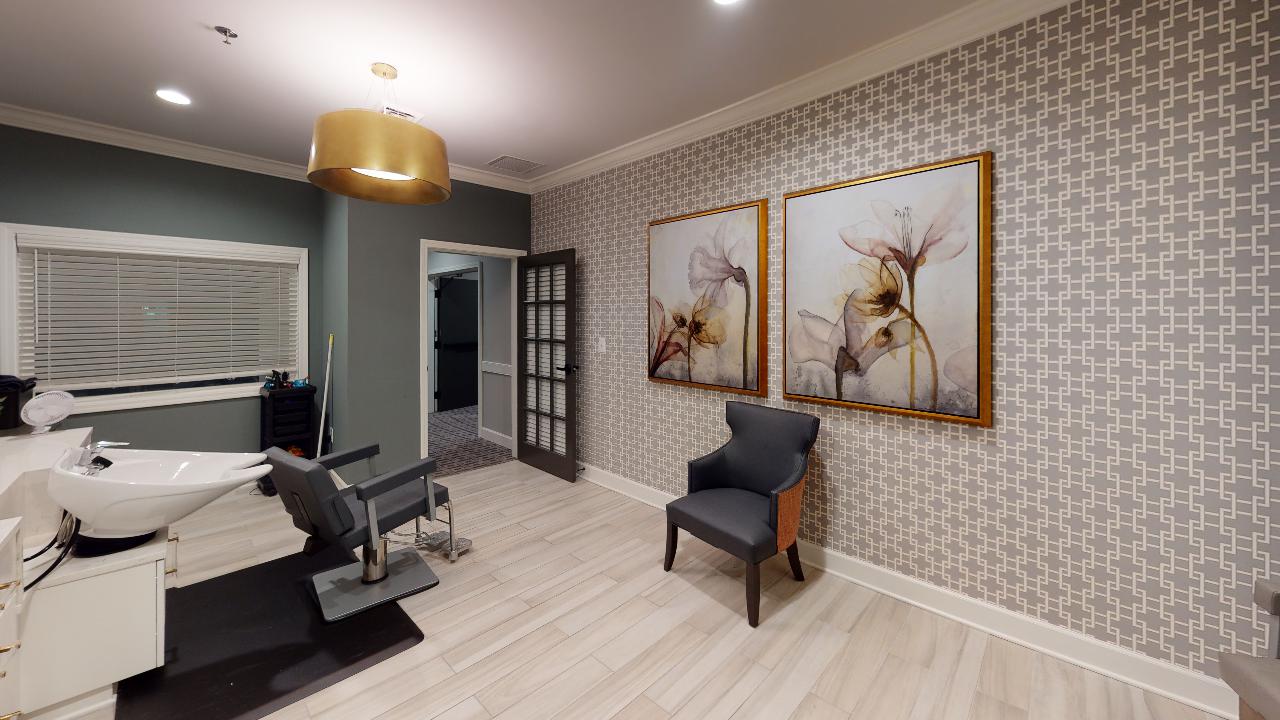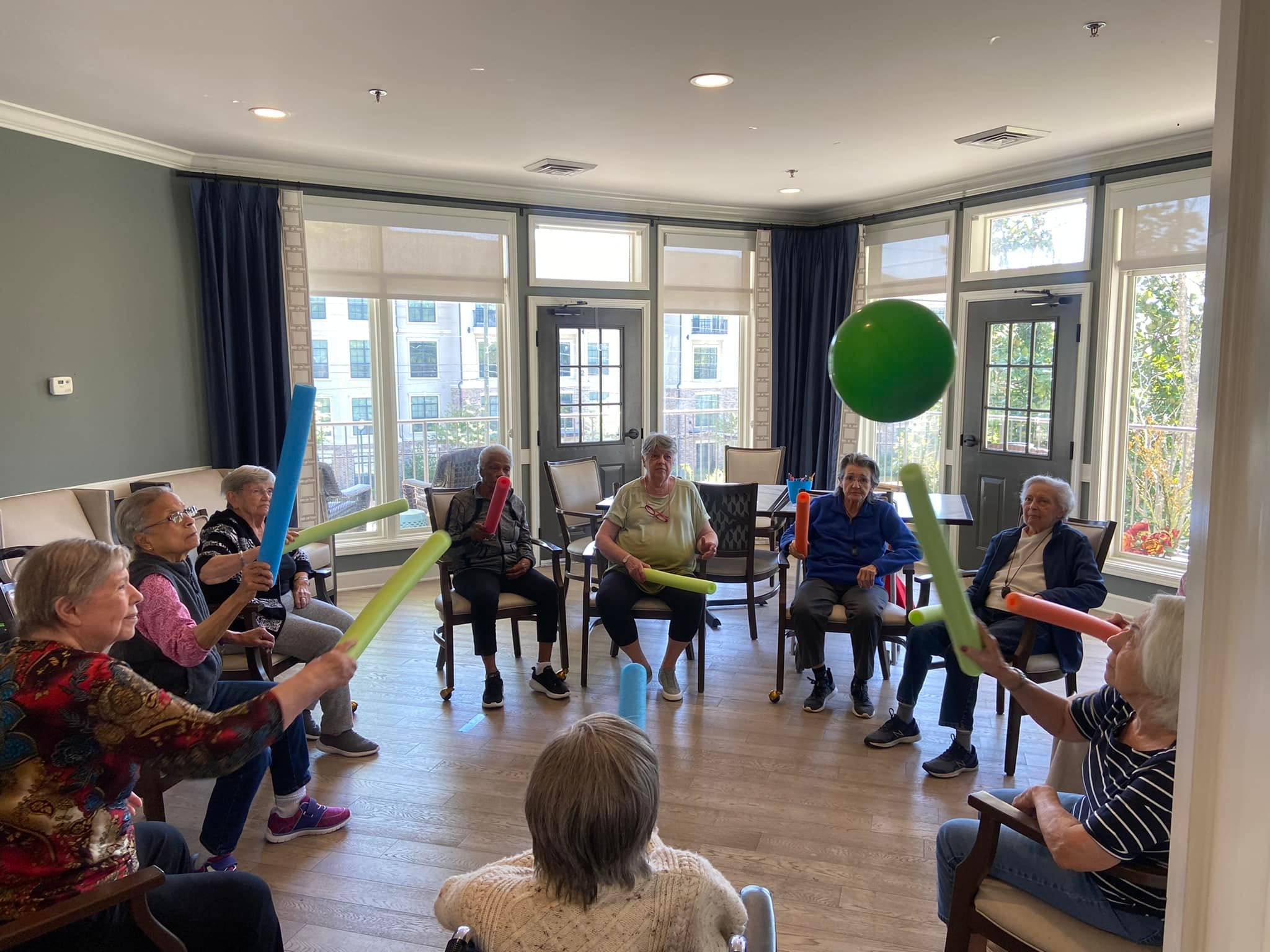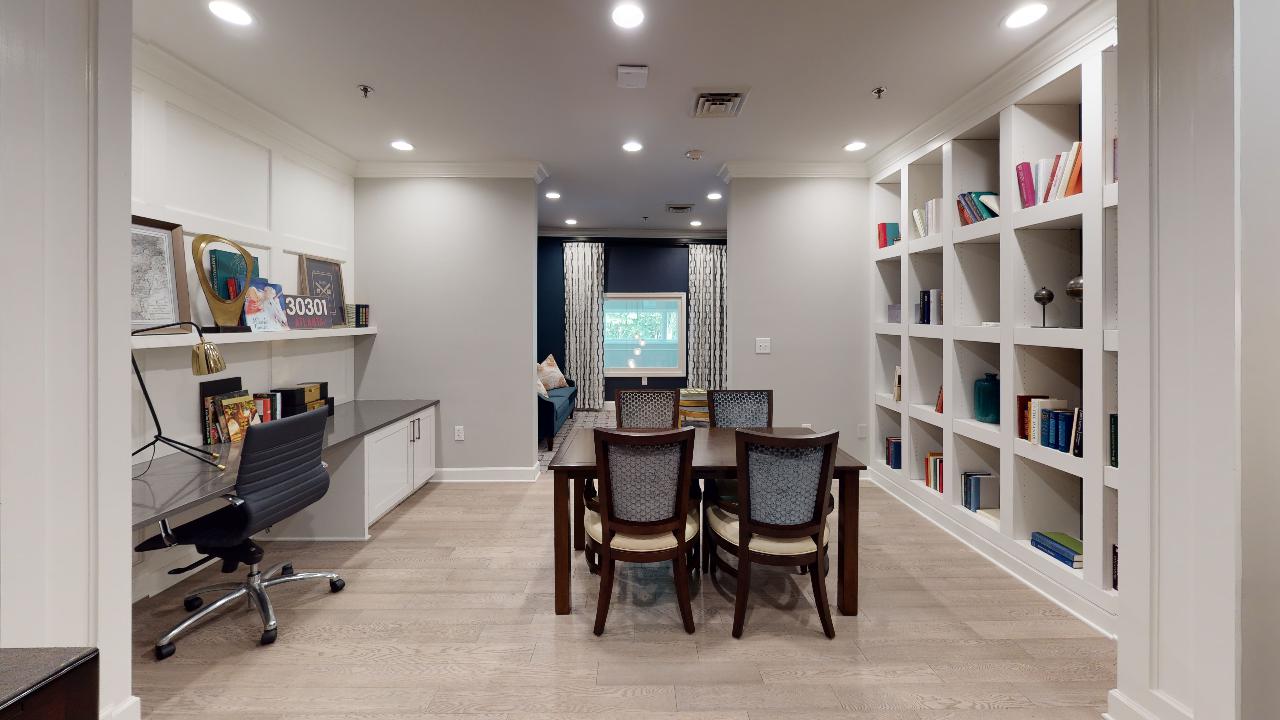Memory care is an essential branch of senior healthcare, catering to individuals facing memory-related conditions, such as Alzheimer’s disease and dementia. In this article, we aim to provide an insightful exploration of memory care, delving into its core principles, historical evolution, and the critical role of elevated amenities in enhancing the well-being of residents.

Defining Memory Care: An In-Depth Analysis
Memory care is a specialized field of healthcare designed to meet the unique needs of individuals with memory-related conditions. It encompasses a comprehensive range of services, from personalized assistance to engaging therapeutic activities, all tailored to improve the quality of life for residents.
- Person-Centered Approach: Memory care places a strong emphasis on a person-centered approach, recognizing the individuality of each resident. This approach allows for customized care plans, adapting to residents’ evolving needs and preferences.
- Safety and Security: Memory care facilities are designed to provide a secure and safe environment, reducing the risk of residents wandering or experiencing accidents. This ensures residents can move freely without endangering themselves.
The Evolution of Memory Care Services: A Clinical Perspective
Over time, memory care has evolved significantly to meet the changing landscape of senior care. It has embraced a clinical perspective, integrating research and advanced practices into its services.
- Historical Background: Memory care’s origins can be traced back to the late 20th century when the need for specialized care for individuals with memory-related conditions became evident.
- Multidisciplinary Approach: Modern memory care employs a multidisciplinary team, including healthcare professionals, therapists, and social workers. This collaboration ensures residents receive comprehensive care addressing their medical, emotional, and social needs.
- Ongoing Research: Clinical research continues to play a pivotal role in enhancing memory care services. Research into the causes and management of memory-related conditions leads to continuous improvements in care.
How Can We Elevate Amenities in Memory Care to Enhance Resident Well-being?
Amenities in memory care facilities are central to improving the quality of life for residents. Elevating these amenities enhances the overall well-being of those in memory care.
- Therapeutic Environments: Memory care communities often incorporate therapeutic design elements, such as soothing color schemes, memory-enhancing cues, and outdoor spaces that promote relaxation and engagement.
- Culinary Excellence: Nutrition is a vital aspect of resident well-being. Memory care facilities often offer specialized menus and dining experiences tailored to residents’ dietary needs and preferences.
- Engaging Activities: Memory care amenities may include specially designed spaces for activities and therapies that stimulate cognitive functions, emotional well-being, and social interaction among residents.
- Cutting-Edge Technology: The integration of technology, such as monitoring systems and communication tools, enhances safety and allows residents to stay connected with their loved ones.
By elevating these amenities, memory care facilities can create a warm, engaging, and supportive environment that upholds the dignity and overall health of individuals living with memory-related conditions.
Exploring Memory Care Challenges at Legacy Ridge at Buckhead
Understanding the Unique Needs of Memory Care Residents at Legacy Ridge at Buckhead
At Legacy Ridge at Buckhead, we understand that memory care residents have unique needs that require tailored solutions. Driven by our commitment to enhancing the lives of our residents, we employ the SPIRIT Memory Care Program, a cornerstone of our approach.
Expert and author Dr. Zeisel notes, “Creating an environment that celebrates and honors the individuality of those with memory-related conditions is key to their well-being. “
Our associates enhance the individuality of each memory care resident’s life with consistency and comfort. We are dedicated to reliving the past, relishing the present, and rejoicing the future, all while serving our residents with love in our hearts.
SPIRIT:
Strengthening minds
Purpose-driven
Identity-focused and celebrated
Rediscovering the joy of the smallest successes
Invigorating each resident every day
Tailoring programming for each resident
What Sets Memory Care Apart from Assisted Living at Legacy Ridge at Buckhead, and Why is it Clinically Significant?
Understanding the differentiation between memory care and assisted living is essential to appreciate the clinical significance of memory care in addressing the unique needs of individuals with memory-related conditions. The distinction between these two forms of senior care is not merely semantic; it rests upon fundamental differences that warrant in-depth consideration.
Specialization in Memory-Related Conditions: Memory care is purposefully designed to cater to individuals facing memory-related conditions, such as Alzheimer’s disease and dementia. Assisted living, on the other hand, offers a more general spectrum of support services for seniors. The specialized nature of memory care ensures that residents receive care tailored to their cognitive, emotional, and behavioral requirements.
Secure and Safe Environment: Memory care communities typically provide a secure and safe environment to minimize the risk of wandering and ensure resident safety. This security is vital as it addresses a common symptom of memory-related conditions, which is the tendency to become disoriented and wander. Assisted living communities may offer safety measures but are generally not as extensively secured.
Clinical Expertise: Memory care communities, like Legacy Ridge, employ professionals with specialized training in managing the unique challenges presented by residents with memory-related conditions. This expertise extends to various aspects, such as cognitive therapies, behavioral management, and creating environments that promote engagement and well-being. This clinical expertise is a hallmark of memory care, ensuring the delivery of precise, evidence-based care.
Dr. Karen Smith, a prominent geriatric specialist, underscores the clinical significance of this distinction, stating, “The presence of professionals trained in the nuances of memory-related conditions is what sets memory care apart. These experts can implement cognitive therapies that significantly improve cognitive function, manage challenging behaviors effectively, and create a therapeutic environment. The clinical expertise within memory care communities enhances the well-being and quality of life of residents.”
A study published in the “Journal of Alzheimer’s Disease” reported that memory care residents demonstrated a 30% increase in cognitive function after participating in tailored cognitive therapy sessions, underlining the clinical efficacy of specialized care.
According to the Alzheimer’s Association, approximately 60% of individuals with dementia will wander, highlighting the importance of secure environments in memory care.
By acknowledging the distinctiveness of memory care and the clinical significance of its specialized approach, we recognize that memory care is not merely a variation of assisted living but a specialized service designed to meet the unique needs of its residents effectively.
How Does Cognitive Decline Affect Quality of Life in Memory Care: Key Clinical Findings?
Cognitive decline has a profound impact on the quality of life for memory care residents. Let’s delve deeper into how cognitive decline can manifest and explore the clinical findings that shed light on effective interventions:
Challenges in Daily Activities: Cognitive decline can lead to difficulties in performing everyday tasks. Residents may struggle with activities as basic as dressing, grooming, or meal preparation. For example, they may forget how to fasten buttons or tie shoelaces, which can result in frustration and a sense of dependency.
Memory Loss: Memory care residents often experience memory loss, which goes beyond the occasional forgetfulness. They may forget the names of loved ones, have trouble recognizing familiar faces, or even become disoriented about their own personal history. This memory loss can cause distress and a sense of disconnection.
Clinical studies, such as a recent one published in the “Journal of Gerontology,” underscore the importance of tailored memory care interventions in addressing these challenges. These interventions may include:
Cognitive Therapy: Cognitive therapy sessions tailored to the individual’s needs, focusing on memory exercises, problem-solving, and mental stimulation. These sessions are designed to improve memory retention and cognitive abilities. For example, engaging in memory games and puzzles can significantly enhance memory recall.
Person-Centered Care: A person-centered approach that considers individual preferences and needs. For instance, residents may prefer certain activities or therapies, such as art or music therapy, that resonate with their personal interests, thereby enhancing their emotional well-being.
Environmental Adaptations: Memory care communities like Legacy Ridge often make environmental adaptations, such as incorporating memory-enhancing cues into the living spaces. For example, labeling bedroom doors with residents’ names and pictures can help them find their rooms more easily, reducing confusion and anxiety.
Dr. Jennifer Adams, a leading expert in the field of memory care, emphasizes that “Cognitive decline need not be a defining factor in the quality of life for memory care residents. Tailored interventions that specifically address these challenges and provide opportunities for residents to engage in meaningful activities are vital in preserving their dignity and overall well-being.”
These interventions, backed by clinical research and real-world examples, are instrumental in improving the quality of life for memory care residents and enabling them to lead more fulfilling lives.
Understanding these clinical findings is pivotal for enhancing the lives of memory care residents at Legacy Ridge at Buckhead, where the focus remains on addressing the daily challenges and improving the well-being of each individual.


Are Premium Features in Memory Care Essential for Resident Well-being and Dignity?
In exploring the necessity of premium features in memory care, we delve into the multifaceted aspects that underpin their significance. Key elements encompass the physical, emotional, and psychological well-being of memory care residents. This inquiry seeks to comprehend the critical role of enhanced amenities in preserving their dignity and augmenting their overall quality of life.
Evaluating the Clinical Aspects of Enhanced Senior Living
When evaluating the clinical dimensions of enhanced senior living, we shift our focus from luxury to essential features that underpin resident well-being. By examining the fundamental components of memory care that extend beyond opulence, we gain insights into the core elements that truly matter. This segment embarks on an exploration of the clinical foundations that define exceptional memory care, taking into account the role of specialized staff, therapeutic approaches, and secure environments.
1. Specialized Staff:
Specialized staff play a fundamental role in memory care communities. These professionals are typically trained to handle the unique challenges posed by residents with memory-related conditions, such as Alzheimer’s disease or dementia. Their expertise extends to understanding the cognitive, emotional, and behavioral aspects of these conditions, allowing them to provide precise, evidence-based care.
- Tailored Cognitive Therapies:
Cognitive therapies in memory care are designed to address the cognitive challenges that residents may face. These therapies are customized to cater to the individual needs of residents, helping to boost memory and cognitive functions. For example, reminiscence therapy encourages residents to share their personal stories and cherished memories. This activity not only promotes cognitive stimulation but also encourages social engagement, contributing to a sense of well-being and connection.
- Environmental Adaptations:
Enhanced memory care environments often feature a range of environmental adaptations. These adaptations are designed to make the living space more accommodating and navigable for residents. For instance, memory care communities may employ color-coded cues for different areas or create life stations that replicate familiar settings, like a kitchen or a living room. These environmental adjustments enhance residents’ orientation and ease of navigation within the community. They also promote a sense of familiarity and comfort, reducing disorientation and distress.
- Secure Living Environments:
Security is a paramount concern in memory care communities. Residents with memory-related conditions are more prone to wandering and becoming disoriented. Therefore, creating a secure living environment is essential. This may involve physical measures such as locked doors and monitored access to ensure resident safety. The secure environment provides peace of mind to both residents and their families.
Incorporating these clinical aspects into memory care goes beyond aesthetics and luxury. It is about addressing the unique and often complex challenges that residents with memory-related conditions face. These elements are recognized and recommended by authoritative bodies like the Alzheimer’s Association, and they are pivotal in enhancing the safety, well-being, and overall quality of life for memory care residents. Dr. Lisa Johnson, an expert in gerontology, underscores the clinical importance of these components in memory care, emphasizing their role in creating an environment that fosters engagement and alleviates distress, ultimately enhancing the well-being of residents.
Analyzing the Impact of Enhanced Amenities on Memory Care: A Clinical Investigation
Shifting our focus from luxury to effectiveness, a clinical investigation into the impact of enhanced amenities on memory care reveals a substantial body of evidence that goes far beyond surface-level allure. Numerous studies highlight the tangible benefits of evidence-based care practices in memory care communities. For example, a study published in the “Journal of Alzheimer’s Disease” reported a remarkable 30% increase in cognitive function among residents who participated in tailored cognitive therapy sessions.
These concrete findings are reinforced by experts like Dr. Emily Turner, a distinguished researcher in the field. Dr. Turner underscores the clinical significance of environmental adaptations that promote engagement and reduce distress. Such adaptations can significantly improve the quality of life for memory care residents.
Dr. Turner affirms, “The clinical impact of enhanced amenities in memory care is manifest through empirical data. Evidence-based practices like tailored cognitive therapies and environmental adaptations lead to tangible enhancements in cognitive function and emotional stability. These findings substantiate the significance of personalized, effective care far beyond the facade of luxury.”
The Role of Enhanced Amenities in Preserving Dignity and Enhancing Psychological Well-being
Exploring the pivotal role of enhanced amenities in preserving dignity and enhancing psychological well-being requires a multi-faceted examination. It is essential to recognize that enhanced amenities encompass not just the physical environment but also the personalization of care and the creation of an environment that fosters independence and emotional connections.
Personalized care respects individual preferences, life histories, and interests, ultimately fostering a profound sense of identity and purpose. These aspects are intrinsically linked to the preservation of dignity and the enhancement of psychological well-being. The promotion of independence and the emotional connections that enhanced amenities facilitate contribute to residents’ feelings of safety and value, thereby reducing anxiety and bolstering self-esteem.
While these elements may not always directly align with traditional luxury, they encapsulate the core principles that should guide memory care. These principles emphasize the creation of a holistic environment that ensures not only physical comfort but emotional and psychological well-being. In essence, memory care that effectively preserves dignity and enhances psychological well-being is rooted in these principles, going beyond superficial luxury to address the essential needs of residents.
In conclusion, the examination of premium features in memory care reveals that their value extends beyond superficial luxury. By evaluating the clinical, psychological, and emotional dimensions, it becomes evident that enhanced amenities significantly impact the well-being and dignity of memory care residents. The genuine essence of enhanced amenities lies in their ability to provide personalized, effective care that respects individual preferences and fosters a sense of identity and purpose.
Key Amenities for Enhanced Care
The focus of this section centers on the key amenities critical for delivering enhanced memory care. These amenities are not merely for aesthetic or convenience purposes but are thoughtfully designed with a clinical approach to optimize resident comfort, engagement, and overall well-being. Each of these aspects plays an integral role in ensuring a holistic and beneficial experience for memory care residents.
Clinical Strategies for Designing Memory Care Spaces that Optimize Resident Comfort and Engagement
Designing memory care spaces that optimize resident comfort and engagement requires a meticulous clinical approach. These spaces are carefully planned to enhance the well-being of residents. Elements such as color schemes, lighting, furniture arrangements, and even sensory cues are tailored to create a soothing and stimulating environment. For instance, color choices can influence mood and orientation, and the strategic placement of memory stations can trigger positive memories and conversations among residents. In essence, these design strategies are crafted to support and enhance the daily lives of memory care residents.
The clinical assessment of these design strategies and their impact on resident well-being is essential. Research in this area often involves evaluating residents’ quality of life, levels of engagement, and the reduction of disruptive behaviors. These design strategies are well aligned with those found in memory care communities like Legacy Ridge at Buckhead, which prioritize resident comfort and engagement as integral to their care philosophy.

Can Cutting-Edge Technology Revolutionize Memory Care, and How?
Cutting-edge technology holds the potential to revolutionize memory care. While technology is not a replacement for human care, it can serve as a powerful adjunct. For instance, wearable devices and sensor technologies can monitor residents’ vital signs and movements, alerting staff to any unusual activity. These technologies enhance safety while respecting the residents’ privacy. Additionally, advancements in telemedicine enable residents to access medical care remotely, reducing the need for disruptive trips to healthcare facilities.
The clinical significance of these technologies lies in their potential to provide more personalized care. By continuously collecting and analyzing data, caregivers can better tailor interventions to each resident’s unique needs. Cutting-edge technology offers promise in augmenting memory care and enhancing the well-being of residents by improving safety, access to healthcare, and personalization of care.
A Clinical Assessment of Wellness and Therapeutic Activities Beneficial for Memory Care Residents
Wellness and therapeutic activities are integral components of memory care that have been clinically assessed for their impact on residents’ well-being. These activities encompass physical exercise, cognitive stimulation, creative arts, and social engagement. Studies have shown that physical activity can significantly improve cognitive function and emotional well-being in memory care residents.
Additionally, therapeutic activities like art and music therapy have been found to reduce anxiety and improve mood. Furthermore, social engagement is critical in preserving a sense of connection and dignity in memory care. Programs like Legacy Ridge at Buckhead’s SPIRIT, which focuses on identity and individuality, have shown clinical benefits in promoting a sense of purpose and enhancing the overall well-being of residents.
In summary, the key amenities for enhanced care in memory care communities are not mere conveniences but are strategically designed to optimize resident comfort, engagement, and overall well-being. These clinical strategies, technological advancements, and wellness activities are well-aligned with the commitment to delivering personalized, effective care, respecting individual preferences, and fostering a sense of identity and purpose. These aspects collectively contribute to enhancing the well-being of memory care residents.
Memory care has evolved over time, embracing a clinical perspective that integrates research and advanced practices into its services. The multidisciplinary approach, historical background, and ongoing research emphasize the continuous improvements in care. The addition of clinical aspects ensures that memory care extends beyond aesthetics, focusing on addressing the unique and often complex challenges that residents with memory-related conditions face.
By elevating amenities in memory care communities, the well-being of residents is significantly improved. Amenities include therapeutic environments, culinary excellence, engaging activities, and cutting-edge technology. These amenities cater to the physical, emotional, and psychological aspects of memory care residents, fostering a profound sense of identity and purpose. This goes beyond superficial luxury, underlining the essential needs of residents.
Understanding the clinical, psychological, and emotional dimensions of enhanced amenities in memory care unveils their true significance. The essence of these amenities lies in providing personalized, effective care that respects individual preferences and fosters a sense of identity and purpose. This is essential for preserving the dignity and overall health of individuals living with memory-related conditions.
Therefore, we invite you to take the next step on this journey with Legacy Ridge at Buckhead and explore firsthand the benefits of our memory care service. Our specialized approach, grounded in the SPIRIT Memory Care Program, is inspired by esteemed experts and principles that place an emphasis on individuality, personalization, and the celebration of each resident’s unique journey.
By visiting our community and witnessing the tangible impact of enhanced memory care amenities, you can be part of the transformation. Join us today, schedule a tour, and discover how Legacy Ridge at Buckhead elevates the well-being of memory care residents in a way that transcends luxury, enriching lives with dignity, purpose, and joy.








